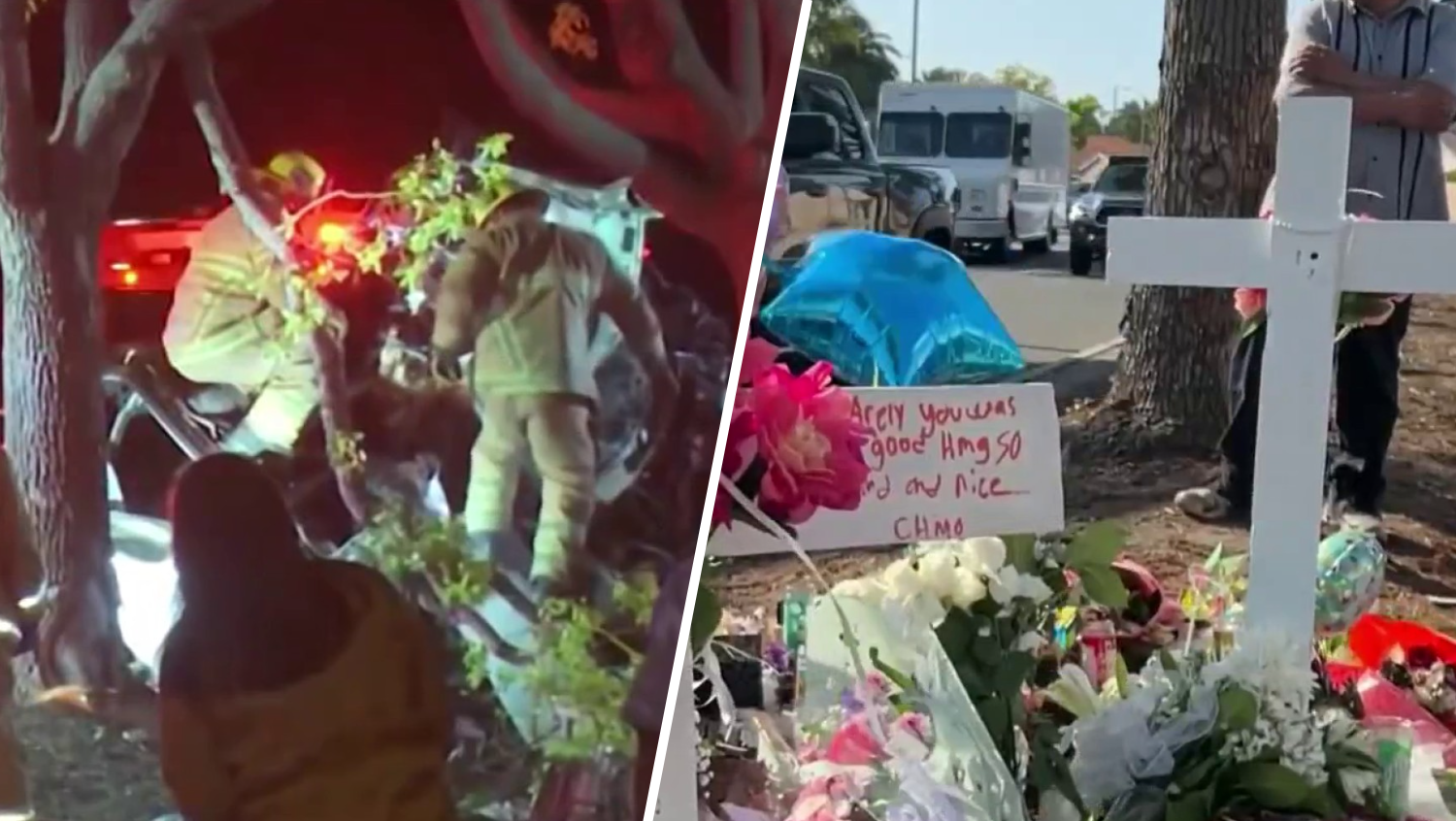Police officers say they are being betrayed by the system, costing taxpayers millions, decreasing the public’s safety and causing unnecessary suffering. Philip Drechsler and Carolyn Johnson report for the NBC4 News on Thursday, Aug. 18, 2016.
If you get injured on the job in California, you are promised a paycheck through the state workers' compensation system, with quick and efficient medical care so you can get back to work.
But as the NBC4 I-Team discovered, many police officers say they are being betrayed by the system, costing taxpayers millions, decreasing the public's safety and causing unnecessary suffering.
Simple tasks are painful for Channing Lang, a 14-year veteran of the Los Angeles Police Department. Two years ago, she suffered a serious injury after morning roll call.
"I stepped out of the car and my kneecap just finally goes completely over and I just fall to the ground," Lang said.
What started as a knee injury from a foot pursuit several years ago spiraled into a life of pain, frustration and eventually the inability to work.
"What it does to the human spirit, you asked me to put it into words and I can't even come up with words for what it did," Lang said.
She says the workers' compensation system is failing her and hundreds of other officers by delaying, and even denying needed treatment.
Local
Get Los Angeles's latest local news on crime, entertainment, weather, schools, cost of living and more. Here's your go-to source for today's LA news.
"That shouldn't be the case," said Martin Martinez, a senior lead officer with the LAPD.
Martinez, a 30-year veteran, says his knees are shot from years of running and jumping with 30 pounds of gear. His orthopedic specialist recommended surgery. But to get approval for medical care, the request has to go through a company hired by the city, which manages workers' comp claims.
According to the city controller, one in three LAPD officers files a workers' comp claim every year. The cost is nearly $100 million a year, leaving 15 percent of the department's workforce sidelined.
"We want to get people back to work as quickly as they possibly can," said Bruce Whidden from the city's department of personnel, adding that the number of denials is not as big as it seems.
"More than 95 percent of all police cases that are filed with work comp are proved without any review," Whidden said. "They are dealt with and the officers get the treatment necessary."
We requested data from the city. It supports the claim that the percentage of denials is low. However, the number of cases being sent for review has doubled in the last couple of years from 3,200 to 6,400. And while that may be a small percentage, it represents a lot of officers.
"That takes an officer off the street and out of a black-and-white," said Mark Cronin, an officer with the police union who spends a majority of his day dealing with officers who are denied prescriptions and medical care.
Los Angeles City Controller Ron Galperin has issued several audits critical of the workers' comp system.
"Our numbers is higher than other jurisdictions are, and also it is taking longer for our people to get back to work," Galperin said.
Galperin says there is a lot of room for improvement.
"If you wanted to design a painful, lengthy, expensive system you couldn't have done a better job than the one that the state has right now," he said.
Attorney Bob Sherwin, who represents police officers, agrees. He says the problems began when the state legislature revised workers' comp laws, creating a complex review process.
"This is an absolute nightmare," he said. "You have actual stories, nightmarish stories of people who can't get the treatment they need."
After two years of pain and fighting against the system, Lang and Martinez say they have a message for Mayor Eric Garcetti, Police Chief Charlie Beck and the personnel department.
"I just want to go back to work," Lang said.
"There is no one else that wants to get back to work other than myself and many of my peers," Martinez said.
The police union is trying to convince the city to adopt an alternative dispute resolution process that would bypass the state system. Other cities have cut the time to resolve disputes by more than 100 percent with the system.
More information:



